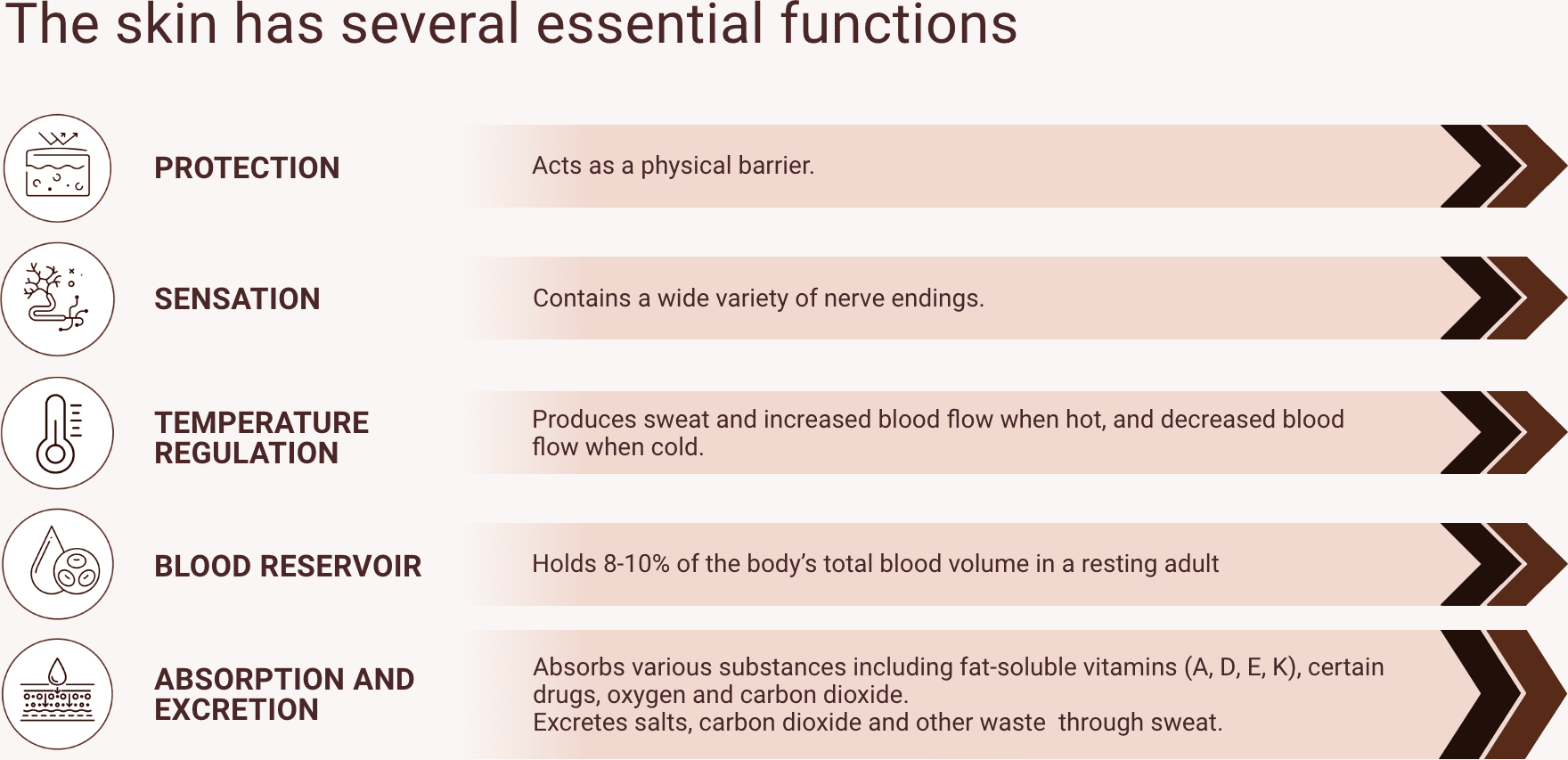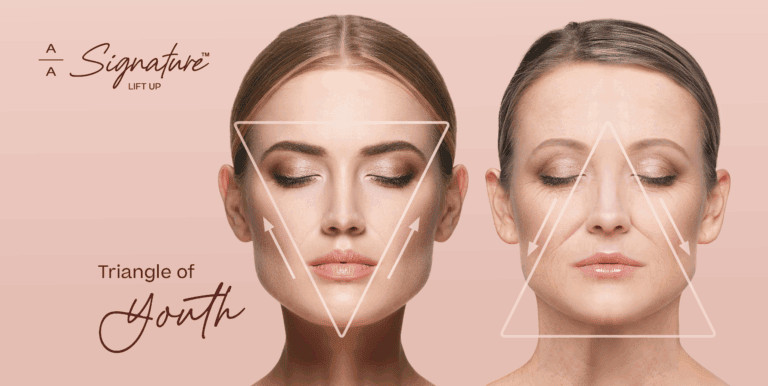Consumer Information Magazine

What is skin?
Skin is your body’s largest organ which protects and helps regulate your body. Each of its multiple layers play a crucial role in maintaining hydration, elasticity, and overall health. Your skin is a dynamic structure that reflects both internal, such as how you feel and external influences such the weather.

Gorgeous, glowing healthy skin is a combination of how your skin looks, feels, and moves. When your doctor assesses your skin based, they look closely at several key attributes:
- Skin Tone Evenness – A balanced complexion without excessive redness, pigmentation, or dullness.
- Skin Texture – Smoothness, softness, and the absence of rough patches or deep-set lines.
- Firmness & Elasticity – The ability of skin to resist sagging and bounce back from movement.
- Hydration & Glow – Well-hydrated skin appears plumper and reflects light for a youthful glow.
The Three Pillars of Skin Health
Healthy skin is supported by three major biological factors: hydration, collagen structure, and cellular function. Each plays a vital role in keeping skin looking, feeling and moving its best. Improvising skin attributes requires a holistic, multi-layer treatment approach that goes beyond the skin surface.
1. Hydration: The Foundation of Radiant Skin
Water is essential for maintaining skin smoothness and resilience. Dehydrated skin tends to appear dull, rough, and more prone to fine lines. Hyaluronic acid, naturally found in the skin, binds moisture to keep skin hydrated and supple. However, factors like aging, sun exposure, and lifestyle habits can deplete hydration levels, making replenishment crucial.
2. Collagen & Elastin: The Skin’s Structural Support
Collagen is the protein responsible for skin’s firmness, while elastin allows it to stretch and return to shape. As we age, collagen production declines, leading to sagging and wrinkles. External stressors like UV exposure and pollution further accelerate this process. Stimulating collagen production can help maintain skin density and elasticity.
3. Cellular Regeneration: The Skin’s Repair Mechanism
Skin constantly renews itself, shedding old cells and generating new ones. This process slows with age, leading to uneven texture, dullness, and slower healing. Encouraging cell turnover through exfoliation, proper nutrition, and targeted skincare can help maintain vibrant, smooth skin.
Enhancing Skin Quality With Advanced Treatments
Understanding what makes skin look, feel, and move better allows you to take proactive steps in your skincare journey. Whether through daily habits or professional treatments that target these areas, prioritising skin health ensures long-term radiance and confidence.Modern treatments offer ways to actively boost skin quality in each health pillar, complementing a healthy lifestyle and daily care routine. Learn more about the AA Signature SKIN for a complete hydration, collagen-stimulating, and skin booster treatment across all three pillars of skin health for a truly holistic approach.





